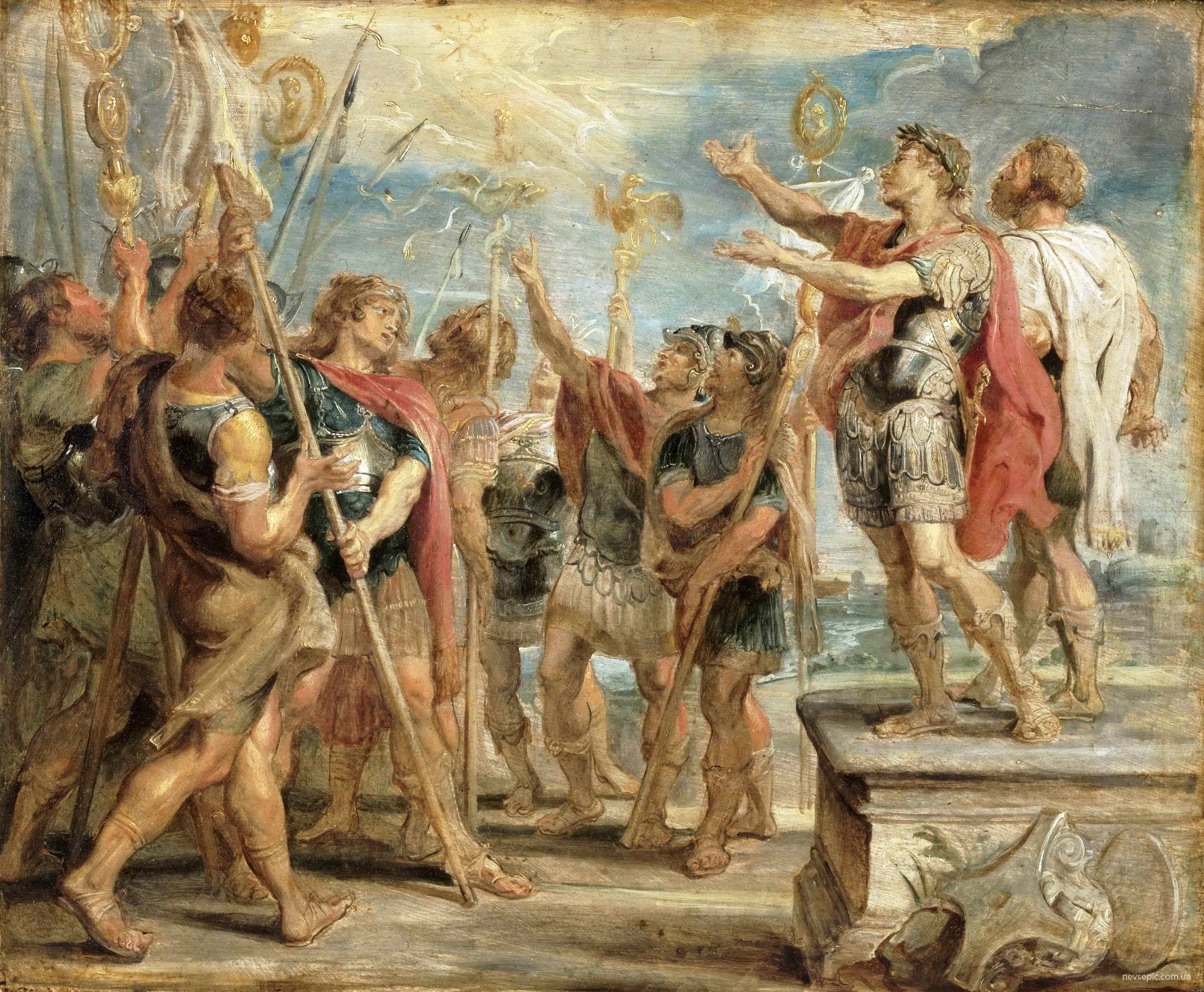Chapter 11. (continued)
When slaves eventually became nearly half of the population of
southern Italy, the Romans viewed this situation as just part of the natural
order. This view, by the way, that superior people must have slaves in order to
have time to pursue nobler ideals and activities did not originate with the
Romans. It had been Aristotle’s view centuries before, and he defended it at
length for reasons similar to those that were part of the total cultural
outlook of the Romans. These people were convinced, without thinking about it,
that their country’s system and the patriotism that it fostered—patriotism that
had been displayed over and over by them, their fellow citizens, and their
ancestors—made them superior. The Romans believed they deserved to be the
masters of inferior cultures.
A society built on slaves and materialism and restrained only by a
warrior’s code of discipline and loyalty, had to collapse when the warriors ran
out of territories to conquer and sank into boredom, sloth, envy, and internal
strife. In short, the cultural code account was depleted until it was bankrupt
and overdrawn. By the time its
people realized that Rome really could fall, it was too late.
.jpg)
Late Roman decadence, as conceived by artist Thomas Couture
Note how the decline
of the Romans’ value system and the laziness of the later Romans regarding ideals
of citizenship and honesty presaged that fall. Note also how we today
understand intuitively the crucial roles values play in the shaping of citizens’
lifestyles and, therefore, in the success of their state. We know of this
relationship at a level so deep that we take it to be obvious. When the Romans
became hypocritical and corrupt, the collapse of their state became inevitable
(we assume). (Note that this idea is common among modern scholars, but it comes
from Edward Gibbon, whose work on the subject is still, arguably, the most respected
of all time.3)
But values and their material
consequences are not obvious; the relationship between a society’s moral values
and its survival has eluded analysis for too long. In this twenty-first
century, we must do better.

Conversion of Emperor Constantine to Christianity (artist, Peter Paul Rubens)
What followed, in the West, was the rise of the Christianity. Did
Christianity get strong because it offered Romans a way out of the cynical ennui
of life in the late Roman Empire, i.e. programmed them to be values-driven again? Or did it just happen to coincide with that
ennui? My position is that values coincide with social change because values changes lead to new patterns of behavior, ones that either help or hinder a society in its
struggle to survive. Neither causes the other. They are both symptoms of deeper
changes in a nation’s consciousness, but they are useful indicators and it just
may be that in this century, the twenty-first by Western reckoning, we will be
able to get a handle on those deeper processes, plan and implement our future
growth, and end the horrors of our species’ past. That is what the triumph of
reason will mean, if we can bring it about.
Christianity told people that the highest state for a human to
aspire to is not citizenship. It us a state of grace, that is, peace with
God. This was easier to achieve in a monastery or nunnery. Renounce the
world in all of its tempting forms; focus on eternity. The balance between
Christian values and Roman ones was hard to strike. When the Visigoths’ challenge came, to many Roman citizens had let their virtues and the
behaviors attached to them slide for too long. The Christian community, in the
meantime, had been taught to shut it all out. People who had integrated the two
value sets, who could be passionately loyal to Rome and also to the more
rigorous moral code of Christianity, were too few to stop the barbarian tide.
Rome fell, in an agony that we today cannot imagine. But the challenge was
bound to come. One hundred fifty years in evolutionary terms is six generations
– almost nothing. For Europe to find the balance between the ideals of democratic
citizenship and those of Christian spirituality took another thousand years. More
on that as we proceed.
No comments:
Post a Comment
What are your thoughts now? Comment and I will reply. I promise.